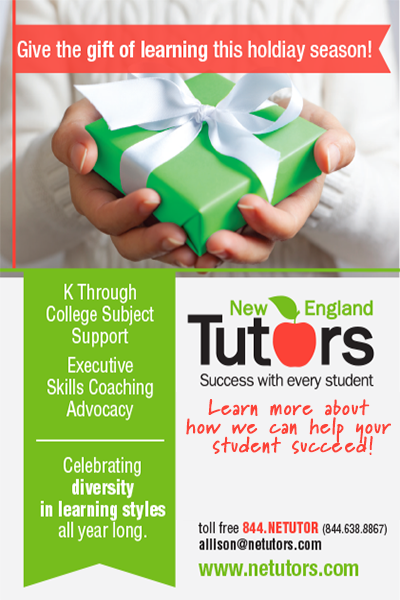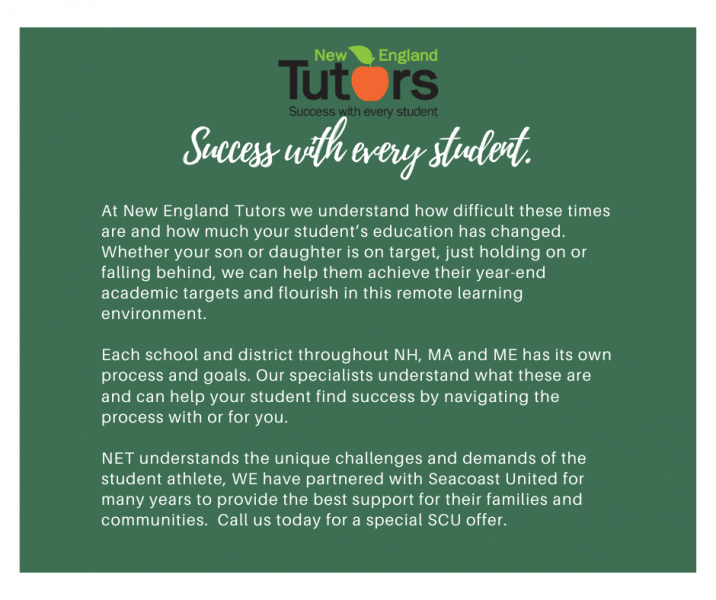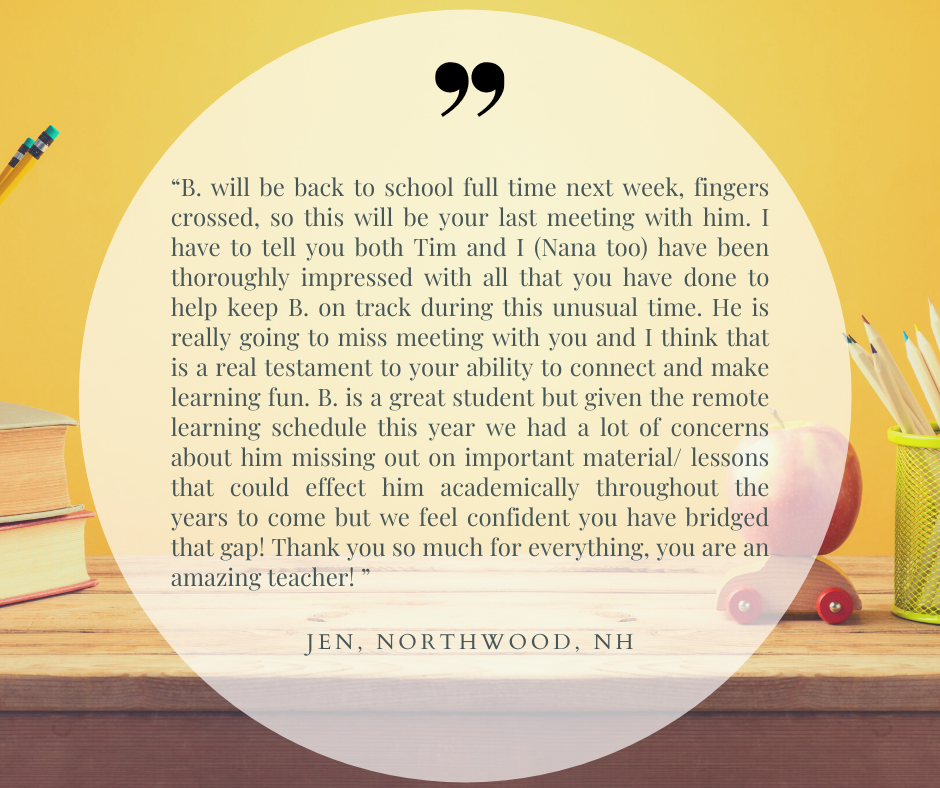STRATEGIES FOR A JOYFUL, RELAXING, AND SUCCESSFUL SUMMER VACATION
By Sarah E. Ross, M.Ed. – Program Director, Executive Skills Coaching
For most children and teens, summer vacation offers a wonderful respite from the routines of the school year – a time to play all day, stay up late and sleep a little later, and be free of homework, tests, presentations, and projects. Fall is far off and being free of school obligations can feel downright blissful. While most parents share in their children’s joy about the arrival of summer break, they may also feel stressed about how to maintain healthy routines and help their children make the most of their days before school starts again in just a couple of months.
The good news is that summer presents a wonderful time for parents to help their children discover some new joys in learning through both structured and unstructured study and creative play. Summer also presents authentic opportunities to help children develop executive skills, or skills needed to manage time and materials, initiate tasks, set goals, self-regulate, and self-reflect. We might define a “successful” summer as one where each person’s unique needs are expressed, heard and deliberately met – and yes, one where there is plenty of “time off”!
While each family’s needs and circumstances are different, here are a handful of strategies that may work well for yours as you engage your child in crafting a joyful, relaxing and successful summer vacation.
PLAN YOUR SUMMER: SET SOME GOALS
Goal-setting helps orient us toward tasks and activities that are purposeful and meaningful — and that lead us toward a desirable result, or goal. While summer also feels like a great time to abandon our goals, it’s important to communicate and model for your child that living with intention – with desirable aims in mind – not only feels good, but is important to our effective functioning in the world. If you’ve been talking as a family for years about doing more summer camping, or getting out to the beach more, or trying out a new sport, this is a great time to make plans together.
Activity: Identify a quiet, relaxed time, perhaps when you can sit outside, and let your child know that you’d like to schedule some time with them to talk about what they’d most like to do this summer. Then, when it’s the time, ask them: what activities will they enjoy most this summer? What friends will they engage for play? What new skills do they want to learn? Also, what academic skills would be helpful to bolster before the fall? Have them write down their answers. When talking about academic skills and goals, it’s helpful to review your child’s spring report cards and also ask your child’s teachers directly about summer support they recommend your child complete.
Once you are aware of your child’s interests and needs, help your child to write some goals and include the action steps that your child will take (“I want to get better at swimming; I will take swim lessons on Thursdays” or “I want improve my reading skills; my parents will look into finding me a tutor once a week in August to help me with my summer reading”). Then, once confirmed, help your child add the steps to a visual calendar so that your child can meet and review them – perhaps with some support. While many children may be resistant to summer tutoring, they may likely have greater buy-in later in the summer when a tutor can help bolster skills and prepare them for the school year ahead. If tutorial support is needed throughout the summer, be certain that your child has lots of play time scheduled, as well.
MAINTAIN A VISUAL CALENDAR
While the summer usually offers an abundance of unstructured time, the school year offers structure and predictable routines that often provide comfort to children – and perhaps to their parents, as well. Without the structure of school routines, some children may have difficulty knowing what to do with their time in the summer, and may possibly become tearful, bored, and even oppositional. While boredom can offer up a world of opportunity for creative play (and yes, that endless summer feeling often comes from our lack of attention to time!), keeping a visual calendar – with play dates, special events and holidays, travel plans, chores, and tutoring times – can help children feel more grounded. Maintaining and reviewing a visual calendar may also help children develop essential metacognitive skills – or awareness of, and deliberate attention to, their thinking, doing, needs and goals – that will benefit them during the academic year, as well. Help your child to set up a large whiteboard calendar in his or her bedroom so that new events, including daily responsibilities like chores, can be added easily. Digital calendars with set “reminders” – think iCal or Google Calendar – are great options, as well.
READ AND WRITE DAILY
Reading and writing can be stressful for children during the school year, especially when children have accompanying learning challenges. Be sure to discuss with your child’s teachers whether professional reading and/or writing support over the summer may be important – and set up a meeting before the vacation, if needed, to make a summer support plan. If your child’s school has assigned summer reading, consider at the start of summer whether a professional tutor may be needed to assist your child with it – and then schedule tutoring appointments once or twice per week, if possible.
With or without professional tutoring, summer offers wonderful opportunities to make reading and writing a bit more fun. Take your child to the library, or encourage your child to go on their own if they’re old enough; sign your child up for a summer reading challenge or help them choose books and reading material of interest. Regularly model daily reading and writing habits in your home, at the beach, on trips. Help your child to write personal letters and emails, keep a blog, or write stories – or put together a scrapbook or photo book that needs captions; get outside and write down what you observe; make a dictionary of new vocabulary words. Daily reading and writing in the summer can be transformative for children, especially when the activities spark, or are sparked by, their passions.
PRACTICE SOME MATH
Discuss with your child’s teachers whether professional math tutoring may help your child over the summer, or if they have recommendations for math activities that will keep them engaged. Board games like Monopoly and Mastermind are fun for people of any age and also happen to support math practice and stimulate mathematical thinking; board games also create opportunities to draw family and friends together in ways that may feel supportive and loving. Online resources like Funbrain.com and IXL.com offer practice in specific areas and skill levels and can usually be accessed independently. The bottom line is that when math feels fun, children may be more apt to engage it in ways that are meaningful and useful.
GET ORGANIZED FOR THE START OF SCHOOL
As a colleague once said, August 1st might as well be “the Sunday of summer.” It’s when children, their parents and their teachers suddenly have a new awareness that the new school year is just around the corner – and that summer is on the brink of fading away. This is a great time to go to the beach! It’s also the perfect time to start getting organized for the start of school. Schools often alert parents and children to the supplies they’ll need, so start there, if possible, and make a fun date of shopping for new materials. August is also a great time to help your child develop a system for filing papers, set up a planner and calendar, and organize his/her study space.
ENGAGE HELP
Parents may find that they start to clash with their child in the month or so before school and that their efforts to be helpful only fuel family tension. This is normal! Professional support from an executive skills coach – someone trained to help students recognize organizational strengths and challenges, plan, organize, and set and meet new goals – may be especially beneficial in August. New England Tutors has successfully trained several executive skills coaches who work one-to-one with clients. Stay tuned, as well, for more information about a new executive skills bootcamp for middle schoolers offered by New England Tutors starting in late August – and an essential companion course for parents!
Keep in mind that once or twice/week subject area tutoring over the course of the summer may provide some gentle structure that your child may come to appreciate and enjoy. If, come August, a professional tutor isn’t already in place for the summer, you may determine that August is a good time to engage one. Tutors can help to bolster academic skills for the fall by reviewing and/or previewing material, helping students complete summer reading and writing assignments, and teaching critical academic skills like reading comprehension, memory skills, and note taking. If your child had difficulty in the last school year or has specific academic needs identified through a professional evaluation or otherwise, also consider whether a meeting with teachers before the first day of school may help.
EMPATHIZE WITH YOUR CHILD
Remember those last days of school as a child and how it felt to launch into summer? There is great joy in summer’s bountiful unstructured time, much of it outdoors – at the beach, on the lake, at the ballfield, in the woods, on hikes, camping, lazing in the hammock with a book. “I love all of that, too,” you can tell them, and really mean it. Absent school instruction, children may explore, create and discover passions on their own. Creative play and free choice nurture new interests, new inventions, friendships, and meaningful connections with ideas and people — and help children to develop their own unique approaches to living in the world. This is important! Unstructured play and “time off” are essential to our livelihoods – at all times of year – and we all ought to make sure we have lots of both. Assure your child that you, too, want to enjoy summer to the fullest.
BE FORGIVING OF YOURSELF AND HAVE FUN
Summer is meant for fun, not tears. If, despite your best intentions to engage summer support, your child spends the entire summer hanging out with friends, swimming, eating ice cream, and lazing on the shores of the Atlantic Ocean, you’re an amazing parent. Summer experiences fuel and inspire us and keep us going, especially in the dead of a New England winter. Turn off screens, get outside, connect with nature, your friends and family – and enjoy every moment.
With confidence and support,
Sarah E. Ross, M.Ed.
Program Director, Executive Skills Coaching
Want more info? We’re here to help! Please feel free to reach Sarah Ross, Program Director of Executive Skills Coaching, directly to discuss items in this newsletter or to learn more about working with an executive skills coach. Sarah may be reached at 844-NETUTOR ext. 702 or sarahrosseducation@gmail.com. Want to arrange a summer tutor or have questions about how New England Tutors might help your child? Please reach Allison Neal, Founder of New England Tutors and Educational Consultant: 844-NETUTOR ext. 700 or allison@netutors.com











